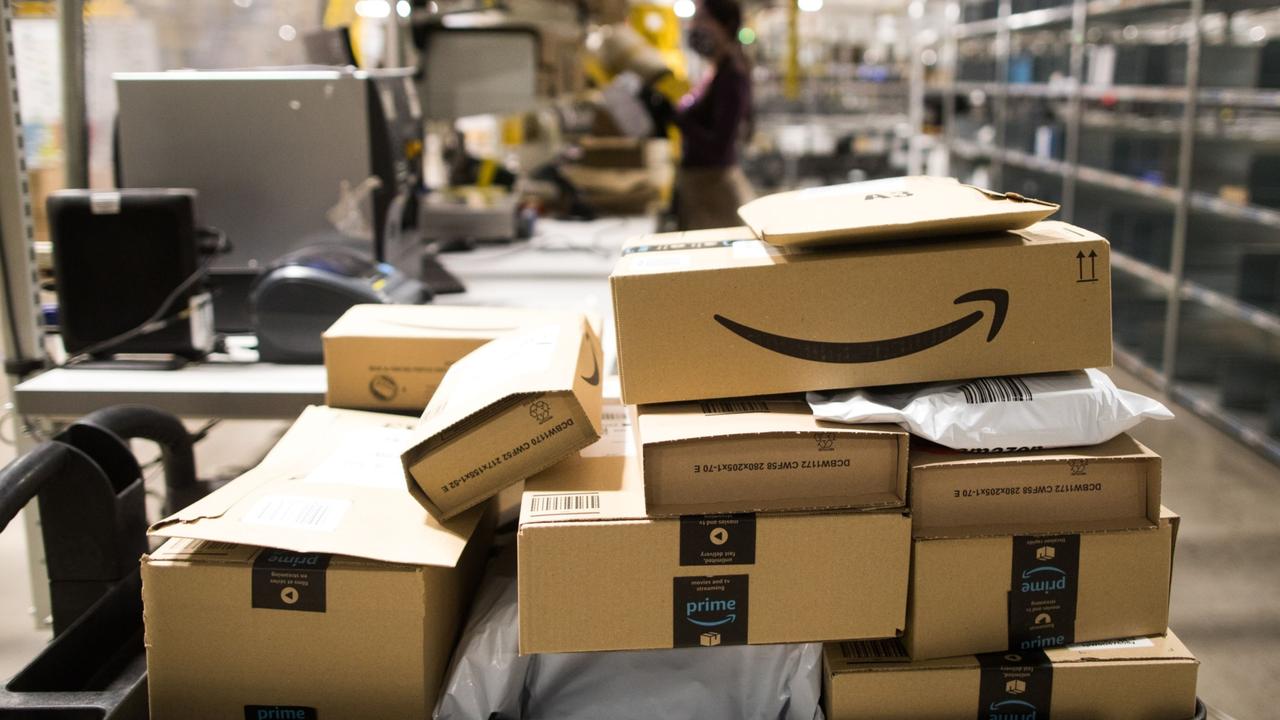Surprising items Australians are buying in the Amazon Prime Day sales
Soaring living costs have had major impacts on Australians’ spending, with the annual Amazon Prime Day sale exposing a new reality.
The way Australians are spending their money in the annual Amazon Prime Day sales has served as a sign of the crushing effect of inflation on households across the county.
In lieu of flashy appliances, TVs and pricey toys, Aussies have been using the massive sale to stock up on basic household essentials like laundry detergent, cat litter, dishwashing liquid, baby care, food and drink.
The trend has highlighted the shift in priorities of consumers, with one in four Australians, or 24 per cent, currently “extremely stressed” about their financial situation, according to Finder.
Grocery stress has skyrocketed from 20 to 35 per cent in the last 12 months, provoking a major change in how people spend their money.

“Online bargain hunting has changed – with many hoping to restock their pantries instead of their closet or game room, Finder shopping expert Christopher Jager said.
“Prices are creeping up everywhere and consumers are having to think outside the box to not blow the budget.”
Of more than three million Australians that planned to shop the Amazon Prime Day sales, many were also expected to spend their money on kitchen appliances.
This was thought to be a result of people looking to cook at home more and spend less on eating out or take away.
Mr Jager warned shoppers against getting too swept up in the deals, urging them to make a list of things they needed and stick to it.
“It’s easy to get carried away and spend money on items you don’t need – so stick to a list and avoid unnecessary spending,” he said.
“Before buying anything, check the prices of household items against supermarket websites so you can tell if you’re truly getting a good deal.
“Just as own-brand products are often cheaper at the supermarket, so too are Amazon branded goods on its websites.”

Four specific cohorts had emerged as a result of the recent cost of living crisis, according to online retailer MyDeal’s chief marketing officer Ryan Gracie.
The first was people who had stopped spending entirely on discretionary, non-essential items, Mr Gracie told Australian Financal Review.
The second were people who had begun tightening their belt and considering their purchases more carefully, he said.
“Then there’s the comfortable middle class, we’ll call them, who of course feel a bit of pressure and probably think more about those big purchases and whether they’ll make them but probably don’t feel the price of lettuce is impacting their pocket too much,” he said.
The final group was made up of people who were “completely in denial” and didn’t realise what was truly happening around them.
Mr Gracie said they were relying “a bit too much on credit or credit or buy now pay later, which he said had recently been plateauing.
Big expensive items like iPhones and Nintendo Switches were now more considered purchases, while household goods like bedsheets and towels were “flying”, Mr Gracie said.






